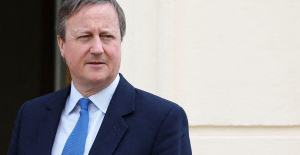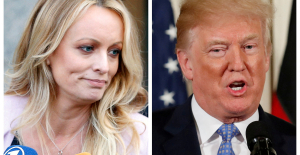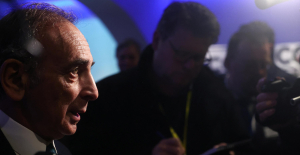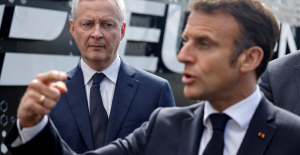On Monday, a former Conservative Treasury minister spoke out against the government's economic policies. He called the government's interest rate levels "ridiculous" as well as its handling of the Budget "nuts." David Cameron and George Osborne brought Lord Jim O'Neill into government in 2015. He argued that the government should spend more on education, health, and devolution, and that inflationary pressures should be controlled with higher interest rates. O'Neill was a former chief economist at Goldman Sachs and was critical of the government's monetary, fiscal, and economic policies. However, he supported Boris Johnson's Levelling-up whitepaper, calling it "one of most important things to come out government for a long period". O'Neill, however, did not spend much time discussing levelling-up. Instead, he criticized general government economic policies. O'Neill told the Commons Treasury committee that it was a mistake for the Bank of England to not have seen the danger of inflation sooner. He said that the increase in spending after the coronavirus crisis had eased had been "one of our most predictable recoveries". O'Neil stated that he would vote for increasing interest rates and ending quantitative ease during the past year, as the recovery was so strong. He said, "It seems quite obvious that not only the Bank [of England], but also other central banks shouldn't have behaved the way they have in the past two year." O'Neill made it clear in a candid session that he believed the UK's economic policy needed to be rebalanced so government borrowing and public investments were higher, and that additional demand was offset with higher interest rates to control inflation and overall spending. O'Neill stated that he believes the entire framework for inflation targeting is beyond its sell-by date. Instead, he called for "a shift of mindset", much more government investment, and "massive delegation". He asked: "Why is there such confidence in need to reduce the deficit?" "If [government] default went to 100 percent [of national income], it was because we had a proper structural approach towards education spending so that they don't have the severe shortage of people who can do what they should be able to do [coming out of our primary and second schools]. . . It would be a great pleasure to have it."
He also called for a larger deficit and more government investment. O'Neill told MPs that the current interest rates, which reached 0.5 percent last week, were "ridiculous" and that the BoE should aim to have interest rates of 4%. O'Neill said that the government must get out of its prison-like situation and ensure that the trend rate for growth does not continue to fall. O'Neill, a former Treasury minister, also stated that there was a better way of formulating the Budget than to rely solely on the Office for Budget Responsibility to forecast and respond to the deficit with either austerity or spending. He said, "It's an absurd situation where the greatest change in the next Year's Budget outcome simply because three people from the OBR changed the economic forecast." It's totally nuts," O'Neill said. While O'Neill and other economists disagreed on the causes of inflation, they all agreed that more government investment in infrastructure and education would be the best way to increase the UK's underlying productivity growth rate. Roger Bootle, chairman of Capital Economics, stated that the BoE was too slow to address inflation. This is expected to increase to 7% and people will naturally demand pay increases. Jagjit Chadha (director of the National Institute of Economic and Social Research) stated that it was crucial for the BoE to reduce inflation with higher interest rates and not cause a recession. Ann Pettifor (director of Prime Economics) disagreed. She said that high inflation was caused primarily by an increase in fuel, freight and energy prices and that the BoE cannot be held accountable for it.


 Iran-Israel: David Cameron wants the G7 to impose “coordinated sanctions” on Iran
Iran-Israel: David Cameron wants the G7 to impose “coordinated sanctions” on Iran Donald Trump trial: who is Stormy Daniels, the ex-porn star who makes the former American president tremble?
Donald Trump trial: who is Stormy Daniels, the ex-porn star who makes the former American president tremble? The day after their conference in Brussels was banned, the nationalist right won their case
The day after their conference in Brussels was banned, the nationalist right won their case Summoning the Iranian ambassador: how the dissemination of “fake news” forced Stéphane Séjourné to react
Summoning the Iranian ambassador: how the dissemination of “fake news” forced Stéphane Séjourné to react New generation mosquito nets prove much more effective against malaria
New generation mosquito nets prove much more effective against malaria Covid-19: everything you need to know about the new vaccination campaign which is starting
Covid-19: everything you need to know about the new vaccination campaign which is starting The best laptops of the moment boast artificial intelligence
The best laptops of the moment boast artificial intelligence Amazon invests 700 million in robotizing its warehouses in Europe
Amazon invests 700 million in robotizing its warehouses in Europe Planned obsolescence: an association warns of the risk of seeing the development of “disposable cars”
Planned obsolescence: an association warns of the risk of seeing the development of “disposable cars” In the private sector, 42% of employees took sick leave last year
In the private sector, 42% of employees took sick leave last year Growth, savings, inflation... These very optimistic forecasts from the government which worry the Court of Auditors
Growth, savings, inflation... These very optimistic forecasts from the government which worry the Court of Auditors In the United States, Google employees demonstrate to demand the repeal of a cloud contract with Israel
In the United States, Google employees demonstrate to demand the repeal of a cloud contract with Israel Gaby, a new play by Pagnol adapted into a comic strip
Gaby, a new play by Pagnol adapted into a comic strip British Taylor Swift fans lose hundreds of euros in counterfeit notes
British Taylor Swift fans lose hundreds of euros in counterfeit notes Celine Dion promises a “raw and honest” film about her illness and her life as an artist
Celine Dion promises a “raw and honest” film about her illness and her life as an artist New York Philharmonic Orchestra Continues Concert Despite Earthquake Warnings
New York Philharmonic Orchestra Continues Concert Despite Earthquake Warnings Skoda Kodiaq 2024: a 'beast' plug-in hybrid SUV
Skoda Kodiaq 2024: a 'beast' plug-in hybrid SUV Tesla launches a new Model Y with 600 km of autonomy at a "more accessible price"
Tesla launches a new Model Y with 600 km of autonomy at a "more accessible price" The 10 best-selling cars in March 2024 in Spain: sales fall due to Easter
The 10 best-selling cars in March 2024 in Spain: sales fall due to Easter A private jet company buys more than 100 flying cars
A private jet company buys more than 100 flying cars This is how housing prices have changed in Spain in the last decade
This is how housing prices have changed in Spain in the last decade The home mortgage firm drops 10% in January and interest soars to 3.46%
The home mortgage firm drops 10% in January and interest soars to 3.46% The jewel of the Rocío de Nagüeles urbanization: a dream villa in Marbella
The jewel of the Rocío de Nagüeles urbanization: a dream villa in Marbella Rental prices grow by 7.3% in February: where does it go up and where does it go down?
Rental prices grow by 7.3% in February: where does it go up and where does it go down? Europeans: the schedule of debates to follow between now and June 9
Europeans: the schedule of debates to follow between now and June 9 Europeans: “In France, there is a left and there is a right,” assures Bellamy
Europeans: “In France, there is a left and there is a right,” assures Bellamy During the night of the economy, the right points out the budgetary flaws of the macronie
During the night of the economy, the right points out the budgetary flaws of the macronie Europeans: Glucksmann denounces “Emmanuel Macron’s failure” in the face of Bardella’s success
Europeans: Glucksmann denounces “Emmanuel Macron’s failure” in the face of Bardella’s success These French cities that will boycott the World Cup in Qatar
These French cities that will boycott the World Cup in Qatar Barça-PSG: legendary match, the Parisian mentality, Donnarumma not serene… Favorites and scratches
Barça-PSG: legendary match, the Parisian mentality, Donnarumma not serene… Favorites and scratches Basketball: Poupet, the Villeurbanne coach, extends
Basketball: Poupet, the Villeurbanne coach, extends Barça-PSG: “Mbappé super”, the European press is delighted with the Frenchman’s return to the forefront
Barça-PSG: “Mbappé super”, the European press is delighted with the Frenchman’s return to the forefront Rugby: Antoine Dupont provides support to a young player seriously injured and plunged into an artificial coma
Rugby: Antoine Dupont provides support to a young player seriously injured and plunged into an artificial coma

















